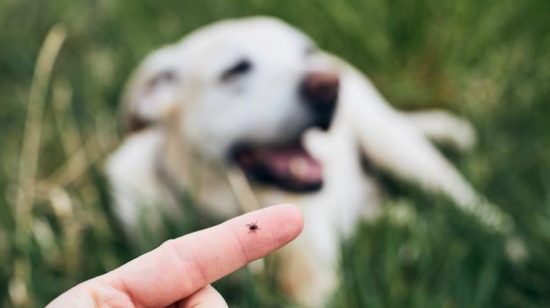Can Dogs Eat Shrimp? A Guide to Feeding Shrimp Safely
Discover if your furry friend can indulge in shrimp with our guide to safely incorporating this seafood into your dog’s diet.

Did you know that shrimp is the most consumed seafood in the United States? With its delicate flavor and versatility, it’s no wonder shrimp is a popular choice for many people. But what about our furry friends? Can dogs enjoy the deliciousness of shrimp too? In this guide, we will explore can dogs eat shrimp and how to do it in a way that keeps them healthy and happy. So, let’s dive in and unravel the mysteries of feeding shrimp to dogs!
The Nutritional Benefits of Shrimp for Your Dog

When it comes to providing a well-rounded diet for your dog, incorporating a variety of nutritious foods is important. One such food that can offer several health benefits for your canine companion is shrimp. Not only is it a tasty treat for dogs, but shrimp also provides a range of essential nutrients that can support your pet’s overall well-being.
Rich in Protein and Omega-3 Fatty Acids
Shrimp is an excellent source of high-quality protein, which is essential for your dog’s growth, development, and maintenance of muscle mass. Protein plays a vital role in supporting a strong immune system, promoting healthy skin and coat, and facilitating proper digestion. Additionally, shrimp contains omega-3 fatty acids, which have numerous health benefits for dogs. Omega-3 fatty acids help reduce inflammation, support cardiovascular health, and promote brain function. These essential fatty acids are especially beneficial for older dogs or those with joint issues, as they can help alleviate discomfort and improve mobility.
Essential Vitamins and Minerals in Shrimp
Shrimp is packed with essential vitamins and minerals that contribute to your dog’s overall health. It contains vitamins B12 and D, as well as minerals like phosphorus, selenium, and zinc. Vitamin B12 is essential for your dog’s nervous system function and the production of red blood cells. It also plays a crucial role in maintaining a healthy metabolism.
Vitamin D is important for bone health, as it helps in the absorption of calcium and phosphorus. Adequate vitamin D levels can aid in preventing conditions like rickets or bone fractures. Minerals like phosphorus, selenium, and zinc support various physiological functions in your dog’s body, including energy production, immune system function, and the formation of healthy skin and fur.
Low in Fat and Calories: A Good Choice for Weight Management
If you’re concerned about managing your dog’s weight, shrimp can be a suitable addition to their diet. Shrimp is low in fat and calories, making it a lean protein source. Its low-calorie content can help prevent weight gain and support weight loss efforts for overweight or obese dogs. However, it’s crucial to ensure that shrimp is prepared without added oils, seasonings, or excessive salt, as these ingredients can negate its low-fat and low-calorie benefits.
Understanding the Risks: When Shrimp Is Bad for Dogs
While shrimp can be a nutritious addition to your dog’s diet, it’s important to be aware of the potential risks and hazards associated with feeding shrimp to dogs. By understanding these risks, you can make informed decisions about including shrimp in your furry friend’s meals.
Shrimp are known to contain high levels of cholesterol. While cholesterol is an essential nutrient for dogs, excessive consumption can lead to health problems, especially in dogs with pre-existing cardiovascular conditions. If your dog has a history of heart disease or high cholesterol, it’s best to consult with your veterinarian before adding shrimp to their diet. However, for healthy dogs without known cholesterol issues, moderate consumption of shrimp is usually safe and won’t significantly impact their cholesterol levels.
Potential for Allergic Reactions and Intolerances
Just like humans, dogs can develop allergies or intolerances to certain foods, including shrimp. The proteins in shrimp can trigger allergic reactions in some dogs, causing symptoms such as itching, skin irritation, digestive upset, or even respiratory distress.
If you’re introducing shrimp to your dog’s diet for the first time, it’s important to monitor them closely for any signs of an allergic reaction. If you notice any adverse symptoms, discontinue feeding shrimp immediately and consult your veterinarian for further guidance.
The Dangers of Shrimp Shells, Tails, and Veins
While the flesh of cooked shrimp is generally safe for dogs to consume, certain parts of the shrimp can pose a choking hazard or cause digestive issues. The shells, tails, and veins of shrimp are not suitable for canine consumption.
Shrimp shells and tails are made of hard material that dogs may struggle to chew and digest properly. Ingesting these can lead to gastrointestinal blockages or injuries to the digestive tract. Moreover, the veins of shrimp can contain sand, grit, or harmful bacteria, which can pose health risks to dogs.
When preparing shrimp for your dog, it’s crucial to remove all shells, tails, and veins to ensure their safety and minimize the risk of digestive complications.
It’s important to remember that each dog is unique, and what works for one dog may not work for another. Before introducing shrimp or any new food into your dog’s diet, it’s always best to consult with your veterinarian for personalized advice based on your dog’s specific health needs and dietary requirements.
Can Dogs Eat Cooked Shrimp?
Now that you know the nutritional benefits and risks associated with feeding shrimp to your dog, let’s dive into the topic of cooked shrimp. Many dog owners wonder if it’s safe to offer their furry companions cooked shrimp as a treat or part of their regular diet. The good news is that cooked shrimp can be a healthy and delicious addition to your dog’s meal plan when prepared and served correctly.

How to Prepare Shrimp for Your Dog
Before feeding cooked shrimp to your dog, make sure to follow a few essential preparation steps. Start by removing the shrimp’s shell, tail, and veins. These parts can present a choking hazard or cause digestive issues for your dog. Additionally, shrimp shells can be sharp and may cause injuries to your pet’s mouth or digestive tract if ingested.
After removing the unnecessary parts, cook the shrimp thoroughly to eliminate any harmful bacteria or parasites. It is important to note that raw or undercooked shrimp can put your dog at risk of digestive upset or potential foodborne illnesses. Ensure that the shrimp is fully cooked until it reaches an appropriate internal temperature.
Common Cooking Methods That Are Safe and Healthy
There are several safe and healthy cooking methods you can use to prepare shrimp for your dog. You can boil, steam, or grill the shrimp without adding any extra oils or seasonings. These cooking methods help retain the natural flavors and nutrients of the shrimp while ensuring it is safe for your dog to consume.
While cooked shrimp can be a nutritious treat for your dog, it’s important to avoid certain seasonings and ingredients that can be potentially harmful. Garlic, onions, and other members of the allium family are toxic to dogs and should never be added to shrimp or any other dog-friendly recipes. Additionally, avoid using excessive amounts of salt or any artificial seasonings that may contain harmful additives.
Remember, moderation is key when introducing cooked shrimp or any new food to your dog’s diet. Always consult with your veterinarian before making any significant changes to your dog’s meal plan or introducing new ingredients.
Can Dogs Eat Shrimp?
While shrimp can be a nutritious addition to your dog’s diet, it’s important to consider the appropriate serving size and frequency to ensure their well-being. Too much or too little shrimp can have different effects on your furry friend, so here are some guidelines to keep in mind: The size of your dog plays a significant role in determining the appropriate portion of shrimp. Here are some general guidelines to help you navigate:
- For small dogs weighing up to 20 pounds, a quarter to a half an ounce of cooked shrimp per serving is sufficient.
- Medium-sized dogs weighing between 20 and 50 pounds can enjoy half an ounce to one ounce of shrimp per serving.
- Large dogs weighing 50 pounds or more can safely consume one to two ounces of shrimp per serving.
Remember that these are approximate measurements, and you should always consider your dog’s individual needs and consult with a veterinarian for precise guidance.
Keeping Treats to 10% of Your Dog’s Diet

While shrimp can be a tasty treat for your dog, it’s important to remember that treats should only make up a small portion of their overall diet. As a general rule, treats should account for no more than 10% of your dog’s daily calorie intake to prevent excessive weight gain or nutrient imbalances.
It’s crucial to prioritize a balanced and complete diet for your furry companion, consisting of high-quality dog food that meets their nutritional requirements. Treats, including shrimp, should be given sparingly and used as a supplement to their regular meals rather than a replacement. By following these guidelines and considering the size of your dog and their overall diet, you can incorporate shrimp into their meals in a safe and enjoyable manner.
The Hazards of Raw Shrimp and Contamination
While shrimp can be a tasty and nutritious treat for your dog when cooked properly, it’s important to be aware of the potential hazards associated with raw shrimp. Raw shrimp can pose risks to your dog’s health due to contamination and the potential for shellfish poisoning. Raw shrimp, like other shellfish, can carry harmful bacteria, viruses, and parasites. These pathogens can cause shellfish poisoning, leading to gastrointestinal issues such as nausea, vomiting, diarrhea, and abdominal pain in dogs. In severe cases, shellfish poisoning can even lead to paralysis or death.
To protect your dog from shellfish poisoning, it’s crucial to ensure that any shrimp you feed them is thoroughly cooked. Cooking the shrimp will kill any potential pathogens and make it safe for consumption.
How to Recognize Symptoms of Shellfish Poisoning in Dogs

If your dog has consumed raw or undercooked shrimp and displays symptoms of shellfish poisoning, it’s important to seek veterinary care immediately. The symptoms of shellfish poisoning in dogs may include:
- Vomiting
- Diarrhea
- Loss of appetite
- Lethargy
- Abdominal pain
These symptoms can vary in severity depending on the extent of contamination and the individual dog’s sensitivity. Early detection and treatment are crucial to ensure your dog’s well-being. To prevent the risk of shellfish poisoning, it’s best to stick to feeding your dog cooked shrimp that has been properly prepared and handled.
| Symptom | Description |
|---|---|
| Vomiting | Expulsion of stomach contents through the mouth |
| Diarrhea | Loose or watery bowel movements |
| Loss of appetite | Decreased interest in food or refusal to eat |
| Lethargy | General lack of energy or enthusiasm |
| Abdominal pain | Discomfort or distress in the abdominal area |
Alternatives to Shrimp: Safe Seafood Options for Dogs
If you’re looking for safe seafood options to add variety to your dog’s diet, there are several alternatives to shrimp that can provide similar nutritional benefits. One option is salmon, which is rich in omega-3 fatty acids that promote a healthy coat and skin. Other seafood alternatives include whitefish and tuna, which are also great sources of protein and omega-3s.
Another option is cod, which is low in fat and calories, making it a suitable choice for dogs on a weight management plan. For smaller dogs or dogs with dental issues, canned sardines can be a convenient and nutritious seafood option. Just make sure to choose varieties packed in water or olive oil, without any added salt or seasonings.
When introducing new seafood into your dog’s diet, it’s essential to start with small portions and monitor for any signs of allergic reactions or digestive upset. Always consult with your veterinarian to determine the appropriate serving size based on your dog’s size, age, and health condition.
FAQs on Can dogs eat shrimp
What are the nutritional benefits of shrimp for dogs?
Shrimp is rich in protein and omega-3 fatty acids, which promote muscle development and support a healthy coat and skin. It also contains essential vitamins and minerals, including vitamin B12, phosphorus, and selenium.
Is shrimp bad for dogs in any way?
While shrimp can be a nutritious addition to your dog’s diet, there are potential risks to be aware of. Shrimp contains cholesterol, and excessive consumption may contribute to heart disease in dogs. There is also the possibility of allergic reactions and the hazards of shrimp shells, tails, and veins.
How much shrimp can I give my dog?
The portion size of shrimp for your dog depends on their size. As a general guideline, treats like shrimp should only make up 10% of your dog’s daily caloric intake. Consult with your veterinarian for specific recommendations based on your dog’s individual needs and health conditions.
What are the hazards of raw shrimp for dogs?
Raw shrimp carries the risk of shellfish poisoning, which can cause gastrointestinal issues such as vomiting and diarrhea in dogs. In severe cases, it can lead to dehydration and organ damage. It’s best to avoid feeding raw shrimp to your dog.
Are there safe seafood alternatives to shrimp for dogs?
Yes, there are several safe seafood options for dogs, including cooked salmon, tuna, and whitefish. These can provide similar nutritional benefits without the potential risks associated with shrimp.





